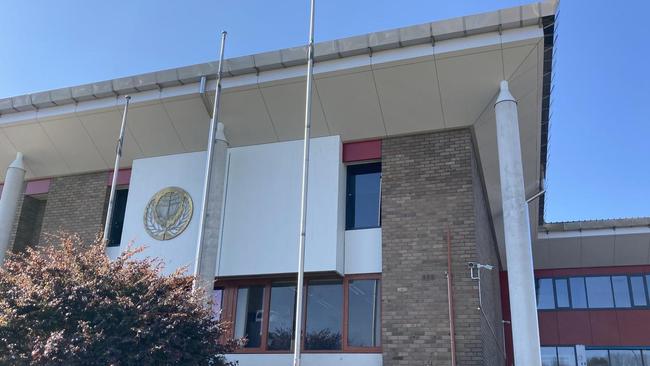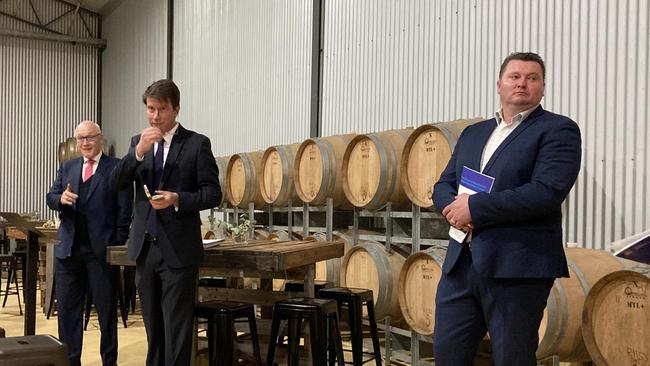Wingecarribee Shire Council public inquiry hearings: Steve Horton slams council’s treatment of business
A former business leader has told the public inquiry hearings about the adversarial relationship between businesses and the council, which he said was characterised by a “lack of transparency and favouritism”.
The Bowral News
Don't miss out on the headlines from The Bowral News. Followed categories will be added to My News.
A former business leader has told the public inquiry hearings about the adversarial relationship between businesses and the council, which he said was characterised by a “lack of transparency and favouritism”.
Steve Horton, the former Chair of the Southern Highlands Chamber of Commerce and Industry addressed the Public Inquiry for the Wingecarribee Shire Council on Monday March 28 to discuss the relationship between the council and the business community in the Southern Highlands.
Mr Horton has lived in the Southern Highlands for more than 40 years and operated local businesses for 35 of those years. He served as Chair of the Chamber of Commerce for the past five years, but he resigned last week to allow fresh faces to take the reins at the important organisation.

As the Chair, Mr Horton told the hearings he heard the many grievances of small businesses in the area who struggled to interact with council.
“We had a number of businesses who were coming to (the Chamber of Commerce) and talking to us about an inability to get development applications across the line, inability to make contact with certain members of the staff,” he said.
“There was a lot of talk in the area about infighting.”
Mr Horton said businesses had characterised the consultation with council as “very poor” for a “very long time”.
He told the hearings local businesses reported a number of disrespectful interactions with both council staff and councillors, and said there was a perception the senior council staff “were playing favourites”.
“Members cited it has been difficult to maintain effective communications with council, senior staff and councillors due to them not wanting to work with some businesses and only prepared to work with others,” the submission from the Chamber of Commerce read.
There was also a perception that unofficial lobby groups were meeting with council and having an impact on developments, according to Mr Horton.
He said the main complaint was the protracted and inconsistent development application process, which he said created unnecessary barriers to conducting business in the Southern Highlands.

“DAs were required for minor activities. The amount of documentation we need to get anything done is ridiculous,” he said.
Mr Horton said the crux of the issue was the inconsistency of the development application process and the lack of transparency, which led to applications being rejected “without reason or advice”.
“Councillors could not like an idea despite council staff being supportive and the application satisfying the requirements,” he wrote in his submission to the hearings.
Mr Horton blamed the drawn-out and unfair development application process for the stagnation of small business in the Southern Highlands.
“It’s stopping people from building, it’s stopping people from putting business in place,” he said.
“That’s just not good enough. We need these businesses to get up and running and we need jobs in the area. That’s our focus.”
The lack of an overriding strategy for interacting with stakeholders was one of the biggest failings of council, according to the former Chair of the Chamber of Commerce.
Overall, the Chamber of Commerce opined the “council took an adversarial role when dealing with small businesses.”
Much of Mr Horton’s testimony reflected the findings of the NSW Small Business Commissioner’s Report released in June last year, which identified the “inflexible” council as a significant impediment to small business development.

More than half of the local small business owners surveyed said the council was a challenge to their work. For a shire comprising 98 per cent small businesses, the finding was a shock.
Businesses told the NSW Small Business Commissioner the council’s communication came as “too little too late”.
The former Chair of the Chamber said it was not only businesses which had lost confidence in the council, but the community as a whole.
“You need to give people some level of confidence that you’re following a process,” he said.
Mr Horton said he hoped the next council would be open to collaboration with businesses for the benefit of the Southern Highlands.
He was the first witness for the public inquiry hearings, which will continue on Tuesday.




